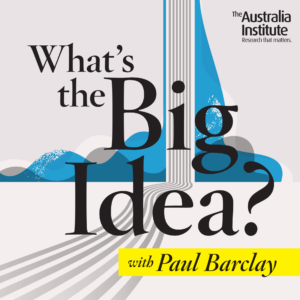NSW’s Independent Commission Against Corruption has revealed extraordinary amorality and cynicism in how the Berejiklian government, and its predecessors, approached both public policy and the use of public money. The ICAC has also revealed Berejiklian’s vicious approach to imposing compliance, complicity and ultimately connivance on the public servants who advise government.
In an extraordinary few minutes of telephone intercept evidence, during which she sounded so matter-of-fact, Berejiklian could be heard responding to Daryl Maguire, who had referred to an unnamed public servant, by saying she couldn’t stand the person, and that “his head will be gone soon”. Maguire, true to his deeply invested self-interest, responded that he wanted the Wagga conservatorium “fixed” first. Berejiklian’s response? “Tell him to fix it and after he fixes it, I’m sacking him.” So cool. So calm. So collected. So cruel.

The only redeeming feature of Berejiklian’s response to counsel assisting was that she had not acted on her intention to decapitate him. “That person is still in the public service today,” she said. It must’ve slipped her mind – as, evidently, did other things like reporting Maguire’s dodgy behaviour.
A few months ago, Senator Bridget McKenzie announced her “doctrine of ministerial discretion”, whereby a minister would “take” advice from the public service (in the sense that the minister would receive the advice but neither accept it nor act upon it). Just as McKenzie displayed total disdain for the public service, its capabilities, its capacities and – more importantly – its responsibilities as prescribed in law (the Public Service Act), so Berejiklian displayed a cavalier disregard for the independence and apolitical responsibilities of the public service and its leaders.
Of course, Berejiklian is neither a newcomer nor a novice in the business of public sector intimidation. Like Robespierre, she just prefers to add decapitation to dismissal. And for those of us who oppose capital punishment, let’s hope she does not share his fate. Upon winning national government in 1996, John Howard immediately dismissed six departmental secretaries who were deemed too close to ministers in the previous Hawke and Keating Labor governments. The purpose of the dismissals was both to punish and “pour encourager les autres” – to intimidate and enforce blind obedience on the public service.
At the Commonwealth level, sacking secretaries has become something of a pastime for some ministers. John Moore was a serial sacker, terminating three of his departmental heads during his various ministerial terms, including the secretary of the Defence department. Tony Abbott’s arrival as prime minister in 2013 saw the dismissal of three secretaries (Agriculture, Resources, and Industry), along with the abolition of two departments and an agency. Then, in 2015, Barnaby Joyce had a falling out with his departmental secretary, who was also dismissed. The practice is well established.
Berejiklian is nothing if not a quick learner: as premier in 2018, she sacked the NSW Industry Department’s secretary in what proved to be an untidy manoeuvre.
The issue here is not the need for public servants to be responsive to the lawful instructions of their ministers and the government they serve. Rather, the issue is the impropriety of ministers abusing their authority and power to punish public servants whom they do not like, or whose advice they do not value. Such abuse of power reveals two characteristics of poor political leadership: disdain for the institution of the public service, without which governments would generally fly blind in the complex and demanding world of public administration; and wilful interference in the orderly management of public service departments, which is the legislated responsibility of the secretary.
There appears to be a growing trend in governments everywhere to see policy initiation and development as the personal prerogative of ministers and their political staff, relegating the execution of policy decisions to the public service. And for the Commonwealth government, when matters get out of hand – such as bushfires or vaccine rollouts – the practice has recently been to reach for a military uniform, thereby securitising the issue and removing it from the management of the relevant public service departments.
Whether it is pork-barrelling, the rorting of grants or the extension of political favours to mates, the current trend is towards politics for its own sake. Investment in re-election – even when that investment is dishonest or doubtful – has become more important than investment in the community that government is intended to serve. The wanton allocation of public monies, of which governments have the responsibility for lawful stewardship and accountability for expenditure, for purely political purposes has become normalised. And if a public servant has the temerity to question a minister’s judgment or to raise questions about equity, legality and legitimacy, that person is, in Berejiklian’s unemotional and unempathetic parlance, for the chop.
That state and territory governments need integrity watchdogs to hold them to account and to protect the electorate from mischievous behaviour is a dismal commentary on how our democracy has declined. The federal government is in dire need of an integrity commission to keep it honest. Bring it on. And, please, let’s leave decapitations to the Place de la Concorde and history.
Between the Lines Newsletter
The biggest stories and the best analysis from the team at the Australia Institute, delivered to your inbox every fortnight.
You might also like
Australia has power, why don’t we act like it? | Allan Behm
In a world of uncertainty, it is more important than ever for Australia to stop dismissing ourselves as a ‘middle power’ and start exerting our influence on the global stage.
All the way with the USA?
Despite demands from the hawks that the Australia Government fall in line with the United States over Iran, it’s not inevitable that Australia supports illegal American military intervention.
Empire strikes back
An imperial revival is occurring under the second Trump presidency.


